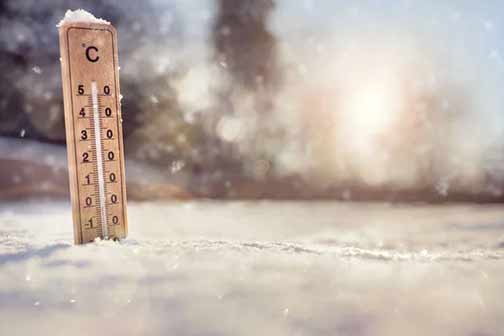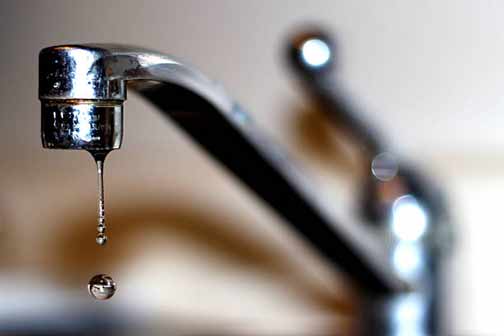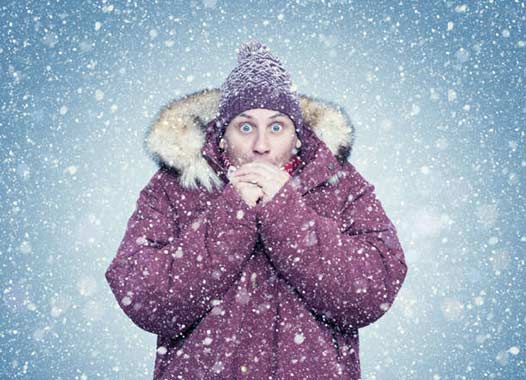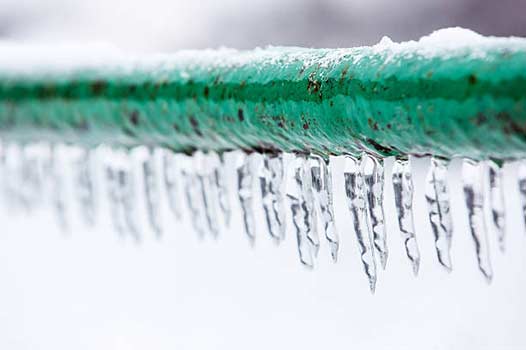
Winter in Chicago is notorious for its extreme cold temperatures, which can have severe consequences for your home’s plumbing system. The freezing temperatures can cause pipes to burst, leading to significant water damage and costly repairs. Winter-proofing your plumbing is essential to prevent these issues and ensure your home stays safe and damage-free throughout the harsh winter season.
Inspecting Your Plumbing System: A Comprehensive Guide
Before winter sets in, it’s crucial to conduct a thorough inspection of your plumbing system. Look for any signs of leaks, corrosion, or damage in your pipes. Pay special attention to areas where pipes are exposed to the cold, such as basements, crawl spaces, and attics. Identifying and addressing any issues early on can prevent more significant problems down the line. Regular inspections can also help you spot potential trouble areas that may require additional insulation or repairs.
Insulating Exposed Pipes: Essential Tips and Techniques
One of the most effective ways to protect your pipes from freezing is to insulate them. Use pipe insulation sleeves or wrapping materials to cover any exposed pipes. This insulation helps to maintain a consistent temperature and prevents the pipes from freezing. Focus on areas where pipes are most vulnerable to the cold, such as exterior walls, unheated spaces, and areas where pipes run close to the foundation. Additionally, consider using foam pipe insulation for added protection and ease of installation.
Sealing Gaps and Cracks: Preventing Cold Air Infiltration
Cold air can seep into your home through gaps and cracks, causing the temperature around your pipes to drop. To prevent this, seal any gaps or cracks in your home’s exterior walls, windows, and doors. Use weatherstripping, caulk, or foam sealant to close off these openings. By keeping the cold air out, you can help maintain a warmer environment for your pipes and reduce the risk of freezing. Pay special attention to areas around windows, doors, and any other openings that may allow cold air to enter your home.
Keeping Your Home Warm: Strategies for Consistent Indoor Temperatures
Maintaining a consistent temperature inside your home is essential for preventing frozen pipes. Keep your thermostat set to at least 55 degrees Fahrenheit, even when you’re not at home. This ensures that your pipes remain at a safe temperature and reduces the risk of freezing. Additionally, open cabinet doors in your kitchen and bathroom to allow warm air to circulate around the pipes. Consider using a programmable thermostat to maintain a consistent temperature and reduce energy costs.

Consider using a programmable thermostat to maintain a consistent temperature and reduce energy costs.
Draining Outdoor Faucets and Hoses: A Step-by-Step Guide
Outdoor faucets and hoses are particularly susceptible to freezing temperatures. Before winter arrives, disconnect and drain all outdoor hoses. Shut off the water supply to outdoor faucets and drain any remaining water from the pipes. This prevents any residual water from freezing and causing the pipes to burst. Additionally, consider covering outdoor faucets with insulated covers to provide extra protection against the cold.
Installing Frost-Proof Faucets: Enhancing Outdoor Protection
Consider installing frost-proof faucets for your outdoor water sources. These faucets are designed to prevent freezing by keeping the water supply shut off inside your home, where it is warmer. This added protection can help prevent pipe bursts and reduce the risk of water damage during the winter months. Frost-proof faucets are a worthwhile investment for homes in areas with harsh winters, such as Chicago.
Using Heat Tape or Heat Cables: Advanced Solutions for Vulnerable Pipes
For pipes that are particularly vulnerable to freezing, such as those in unheated areas or exterior walls, consider using heat tape or heat cables. These products provide a controlled amount of heat to keep the pipes warm and prevent freezing. Follow the manufacturer’s instructions carefully to ensure safe and effective use. Heat tape and cables can be particularly useful for pipes located in basements, attics, and crawl spaces.
Letting Faucets Drip: Simple Measures to Prevent Freezing
During periods of extreme cold, allowing your faucets to drip slightly can help prevent pipes from freezing. The constant flow of water, even if it’s just a small trickle, can prevent pressure from building up in the pipes and reduce the risk of a burst pipe emergency. Focus on faucets located on exterior walls or in unheated areas of your home. This simple measure can make a significant difference in preventing frozen pipes.

During periods of extreme cold, allowing your faucets to drip slightly can help prevent pipes from freezing.
Maintaining Your Water Heater: Ensuring Reliable Hot Water Supply
Your water heater plays a crucial role in keeping your home warm during the winter. Ensure that it is in good working condition by performing regular maintenance. Check for any signs of leaks, corrosion, or damage, and have it serviced by a professional if necessary. A well-maintained water heater can help prevent frozen pipes and ensure a reliable supply of hot water throughout the winter. Additionally, consider insulating your water heater and the surrounding pipes for added protection.
Knowing How to Shut Off Your Water Supply: Emergency Preparedness
In the event of a pipe burst, it’s essential to know how to shut off your water supply quickly. Locate the main water shut-off valve in your home and ensure that everyone in your household knows where it is and how to use it. Shutting off the water supply can help minimize water damage and prevent further issues while you wait for professional assistance. Familiarize yourself with the location and operation of the shut-off valve before an emergency occurs.
Seeking Professional Help: When to Call a Plumber
If you’re unsure about any aspect of winter-proofing your plumbing, don’t hesitate to seek professional help. A licensed plumber in Chicago can conduct a thorough inspection of your plumbing system, identify any potential issues, and provide expert advice on the best ways to protect your pipes from freezing. Investing in professional assistance can save you time, money, and stress in the long run. A plumber can also recommend additional measures to enhance the protection of your plumbing system.
Understanding the Risks of Frozen Pipes: Potential Consequences
Frozen pipes can lead to a range of problems, from minor inconveniences to major disasters. When water freezes, it expands, which can cause pipes to crack or burst. This can result in significant water damage to your home, including damaged walls, floors, and personal belongings. Additionally, the cost of repairing burst pipes and addressing water damage can be substantial. Understanding these risks underscores the importance of taking proactive steps to winter-proof your plumbing.

When water freezes, it expands, which can cause pipes to crack or burst.
Preparing for Power Outages: Ensuring Continuous Heating
Winter storms can sometimes lead to power outages, which can affect your home’s heating system and increase the risk of frozen pipes. To prepare for this possibility, have a backup heating source, such as a portable heater or fireplace, to keep your home warm. Additionally, consider investing in a generator to provide power during an outage. Ensuring that your home remains warm during a power outage can help prevent pipes from freezing. Plan ahead and ensure that your backup heating sources are in good working order.
Monitoring Weather Conditions: Staying Informed and Prepared
Stay informed about the weather conditions in your area, especially during the winter months. Pay attention to weather forecasts and be aware of any extreme cold warnings. Knowing when to take extra precautions, such as allowing faucets to drip or using additional insulation, can help you stay ahead of potential issues and protect your plumbing from freezing temperatures. Regularly monitoring weather conditions can help you make timely decisions to safeguard your home.
Regularly Checking for Signs of Freezing: Early Detection and Prevention
Throughout the winter, regularly check your plumbing system for any signs of freezing. Look for frost on pipes, reduced water flow, or unusual noises coming from your pipes. If you notice any of these signs, take immediate action to thaw the pipes and prevent further damage. Using a hairdryer or space heater to gently warm the pipes can help thaw them safely. Early detection and prompt action can prevent minor issues from turning into major problems.
Educating Your Household: Collaborative Efforts for Winter-Proofing
Ensure that everyone in your household is aware of the steps to take to prevent frozen pipes. Educate them on the importance of keeping the thermostat set to a safe temperature, opening cabinet doors, and knowing how to shut off the water supply. By working together, you can help protect your home from the risks associated with frozen pipes. Encourage open communication and cooperation to ensure that all household members are on the same page.

Educate your household on the importance of keeping the thermostat set to a safe temperature, opening cabinet doors, and knowing how to shut off the water supply.
Winter-Proofing Your Home’s Exterior: Comprehensive Protection Measures
In addition to protecting your plumbing, take steps to winter-proof your home’s exterior. Clean out gutters and downspouts to prevent ice dams, which can cause water to back up and damage your roof and walls. Trim any overhanging branches that could break under the weight of snow and ice, potentially damaging your home or plumbing system. Ensuring that your home’s exterior is prepared for winter can help protect your plumbing and reduce the risk of damage. Consider installing storm windows and doors for added protection against the elements.
Staying Vigilant Throughout the Winter: Ongoing Maintenance and Monitoring
Winter-proofing your plumbing is not a one-time task; it requires ongoing vigilance throughout the winter months. Regularly inspect your plumbing system, monitor weather conditions, and take proactive steps to address any issues that arise. By staying vigilant, you can help ensure that your home remains safe and damage-free throughout Chicago’s harsh winters. Consistent attention to your plumbing system can prevent unexpected problems and ensure a worry-free winter season.
Conclusion: Ensuring a Safe and Damage-Free Winter
Winter-proofing your plumbing is essential for protecting your home from the risks associated with Chicago’s harsh winters. By taking the necessary steps to insulate pipes, seal gaps, maintain a consistent indoor temperature, and seek professional help when needed, you can prevent frozen pipes and avoid costly repairs. Stay vigilant throughout the winter months and be proactive in addressing any potential issues to ensure your home remains safe and damage-free. With the right preparation and attention to detail, you can enjoy a worry-free winter season in Chicago.



